Slaves and Englishmen
THE EARLY MODERN AMERICAS
Peter C. Mancall, Series Editor
Volumes in the series explore neglected aspects of
early modern history in the western hemisphere.
Interdisciplinary in character, and with a special
emphasis on the Atlantic World from 1450 to 1850,
the series is published in partnership with the
USC-Huntington Early Modern Studies Institute.
Copyright 2014 University of Pennsylvania Press
All rights reserved. Except for brief quotations used for purposes of review or scholarly citation, none of this book may be reproduced in any form by any means without written permission from the publisher.
Published by
University of Pennsylvania Press
Philadelphia, Pennsylvania 19104-4112
www.upenn.edu/pennpress
Printed in the United States of America on acid-free paper
10 9 8 7 6 5 4 3 2 1
Library of Congress Cataloging-in-Publication Data
Guasco, Michael, 1968
Slaves and Englishmen : human bondage in the early
modern Atlantic world / Michael Guasco. 1st ed.
p. cm. (Early modern Americas)
Includes bibliographical references and index.
ISBN 978-0-8122-4578-3 (hardcover : alk. paper)
1. SlaveryAtlantic Ocean RegionHistory.
2. SlaveryUnited StatesHistoryColonial period,
ca. 16001775. 3. SlaveryGreat BritainHistory.
4. Atlantic Ocean RegionHistory17th century.
5. United StatesHistoryColonial period, ca. 16001775.
6. Great BritainColoniesAmericaHistory17th
century. I. Title. II. Series: Early modern Americas.
HT867.G83 2014
306.362dc23
2013024699
INTRODUCTION
______________
The Problem of Slavery in Pre-Plantation America
Perhaps it is best to begin with the familiar: In 1619, a Flemish privateer called the White Lion dropped anchor off Point Comfort at the eastern extremity of the English settlement in Virginia. Captain Jope and his men had suffered greatly on their return voyage from the West Indies and when the ship arrived in the Chesapeake the pirates were short on palatable food and potable water. It may be that Jope and his men had been at sea longer than anticipated or that his provisions had spoiled as a result of exposure to rough weather or rotted as a result of improper storage. These things happen. Of course, Jope and his men could also have been unusually hungry and thirsty because of the extra mouths they had stored away somewhere in the belly of their ship, for one Englishman reported that on board were not any thing but 20. and odd Negroes, w[hich] the Governo[r] and Cape Marchant bought for victualle. By the time he departed, Jope had fresh provisions and water and had reduced the number of mouths on board by striking a bargain with the leaders of the English settlement, an exchange that resulted in the first documented arrival of African peoples in Virginia. For Captain Jope and his men, it was clear sailing as they set out for familiar European waters. For the colonists and the newly purchased Africans, not to mention the historians who have studied both, matters quickly became much more complicated.
Almost a generation later, another story unfolded: In the wake of the Pequot War in New England in 1637, Massachusetts officials ordered seventeen Pequot Indiansfifteen boys and two womento be sent out of New England. English Puritans had taken hundreds of captives in the wake of their triumphs in battle at Mistick and the Great Swamp. Subsequently, they
Twenty years later, a third, almost certainly less well-known event occurred in the English Atlantic: During the late 1650s, Parliament received two petitions on behalf of more than seventy Englishmen claiming that they were freeborn people of this nation now in slavery in Barbados. In response, Parliament conducted a brief debate, although some members protested that the petitions had been introduced through irregular channels. Those who were directly implicated by name or as property holders in Barbados were particularly defensive. Martin Noel of Staffordshire noted that he traded into those parts and to the best of his knowledge the work was indeed hard, but none are sent without their consent and those who went were civilly used, and had horses to ride on. Besides, Noel added, they were commonly contracted for five years and did not work as hard as the petitioners claimed because the work is mostly carried on by the Negroes. Other Parliamentarians were not so certain that the grievances were false. Hugh Boscawen of Cornwall made a particularly compelling argument when he warned that if Englishmen lost the right to a trial or to petition Parliament our lives will be as cheap as those negroes. They look upon them as their goods, horses, &c., and rack them only to make their time out of them, and cherish them to perform their work. For that reason alone, Boscawen would have [Parliament] consider the trade of buying and selling men.
These often-told tales (at least in certain circles) are important parts of early Anglo-American history and, of course, they are stories about slaveryor at least they appear to be so. Numerous historians have argued that the arrival of a small shipload of Africans in early Virginia, while certainly an important chapter in the history of the circulation of African peoples in the broader Atlantic world, does not really tell us much about slavery in Anglo-America because no law yet enshrined African slavery in either
Different historical lights have also been cast on the story of the Pequot Indian slaves. Indian slavery is currently a vibrant area of scholarly inquiry, but the Pequot story rarely receives more than a brief mention because scholars are much more likely to look at other times and places in order to understand the broad outlines of this underappreciated subject. As with the 20. and odd Negroes, the cannibal negroes have been used in a variety of ways to suit the demands of scholarly inquiry.
And what about the Britons who became slaves? Certainly some scholars have been inclined to sympathize with the aggrieved Barbadians.
Although there are countless ways to use these disparate stories from different parts of the early English Atlantic world, they are nonetheless linked by slavery. Unfortunately, characterizing anything as slavery or anyone in particular as a slave during the first half century of English colonialism tends to produce more confusion than clarity because, from a strictly technical point of view, slavery was not legal in the English-speaking world before the mid-seventeenth century. Barbados and Virginia both enacted important legislation in 1661 to rectify that situation, and subsequent generations of scholars have dutifully taken that date as a convenient starting point for documenting the development of slavery as a key social and economic institution in the English Atlantic world. From that date forward, it is relatively easy to trace the growth of Englands plantation complex and the transformation of colonial societies from the mid-Atlantic southward as ever larger numbers of bound Africans began pouring into the Chesapeake and West Indies. By the dawn of the eighteenth century, slavery was fully buttressed by positive law, firmly entrenched in Anglo-American society and culture, and Great Britain was well on its way to becoming the dominant slave-trading power in the world.


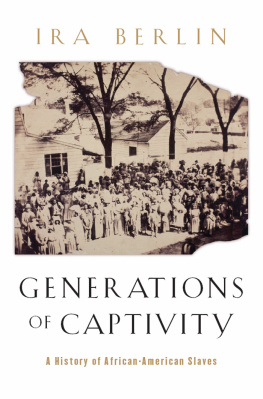
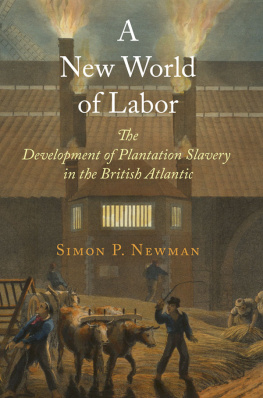

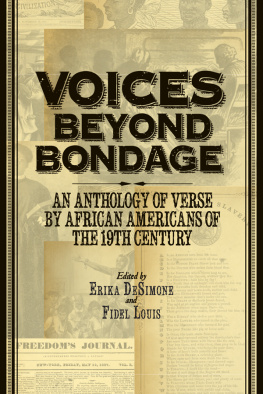
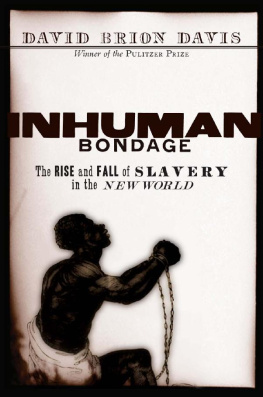
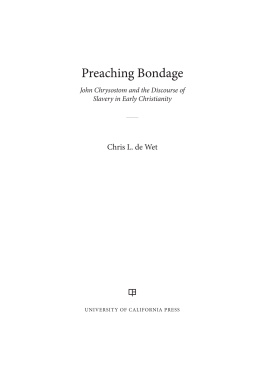


 AND
AND 